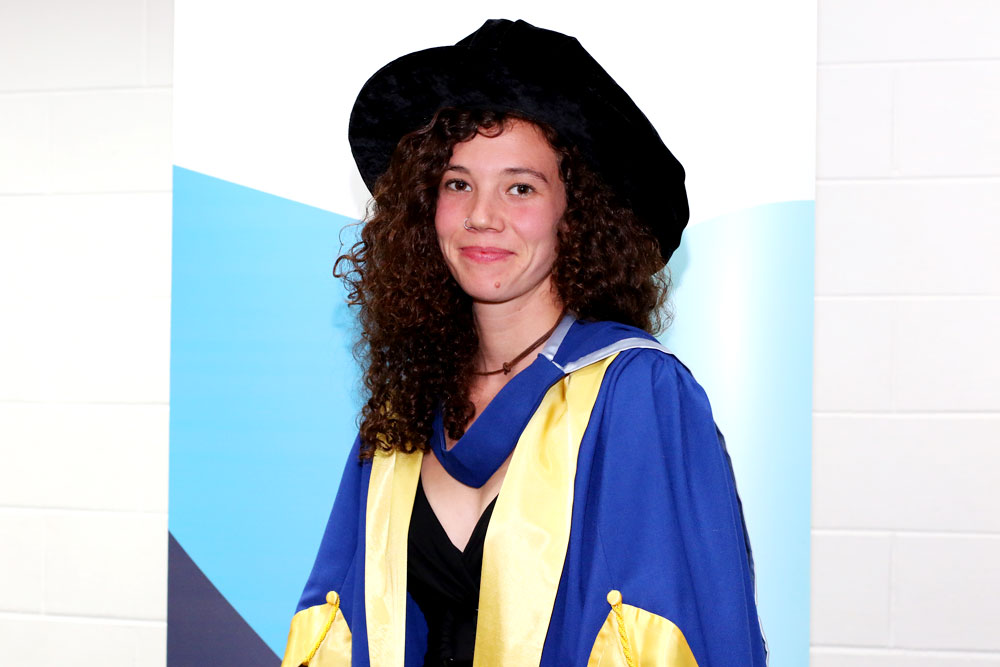Amanda Jones
12 April 2018: An interest in toxicology took Teresa Chavez-Capilla halfway around the world.
The 31-year-old moved from Spain in 2013 to undertake a PhD at the University of Canberra, thanks largely to the project on offer – studying the metabolism of arsenic in humans.
Her research examined the metabolism of different arsenic compounds found in food and how they are transformed in the gut and the liver.
She graduated with a Doctor of Philosophy on Wednesday 11 April.
“Arsenic is generally believed to be toxic, and in some cases, deadly, it is just an element foreign to the human body and not always toxic,” Dr Chavez-Capilla said.
“It occurs naturally in a variety of foods. My research looked at the arsenic compounds present in rice, seaweed and fish, as they are the most significant.”
By simulating gastrointestinal digestion and using human liver cells cultivated in the University’s pharmacy lab, Dr Chavez-Capilla studied the transformations of different arsenic compounds from food to see whether they changed in toxicity.
“I was particularly interested in arsenic compounds called arsenolipids, some of which are similar to fatty acids,” she said.
“Other research has found that arsenolipids can be toxic to humans. I was interested to see if these degraded in the gastrointestinal tract and then whether or not they were broken down into less toxic compounds in the liver.”
Dr Chavez-Capilla found that arsenolipids stay stable after passing through the digestive tract before becoming less toxic in the liver.
Despite missing her family and the hustle and bustle of Madrid, Dr Chavez-Capilla said she has enjoyed her time in the nation’s capital.
“There were very exciting moments, especially when I started getting interesting results and I had to interpret them.”
Her relationship with the University will continue for another year. She has secured a position as a postdoctoral research fellow to develop new testing methods as part of a collaborative project between the University and pathology test provider MyHealthTest.
In the long term, she would like to explore other research areas related to the human microbiome.
“I’m becoming very interested in the human microbiota or the microbes we have in our body, so I would like to learn more about that. I’m really happy to learn as much as I can.”
Read about more of our recent graduates:
From first class to first class honours
Grad's personal hardship fuels career ambitions
Beauty queen pens education degree
Young mum completes childhood dream
Animal conservationist honoured



